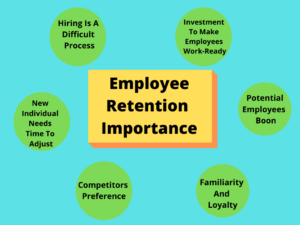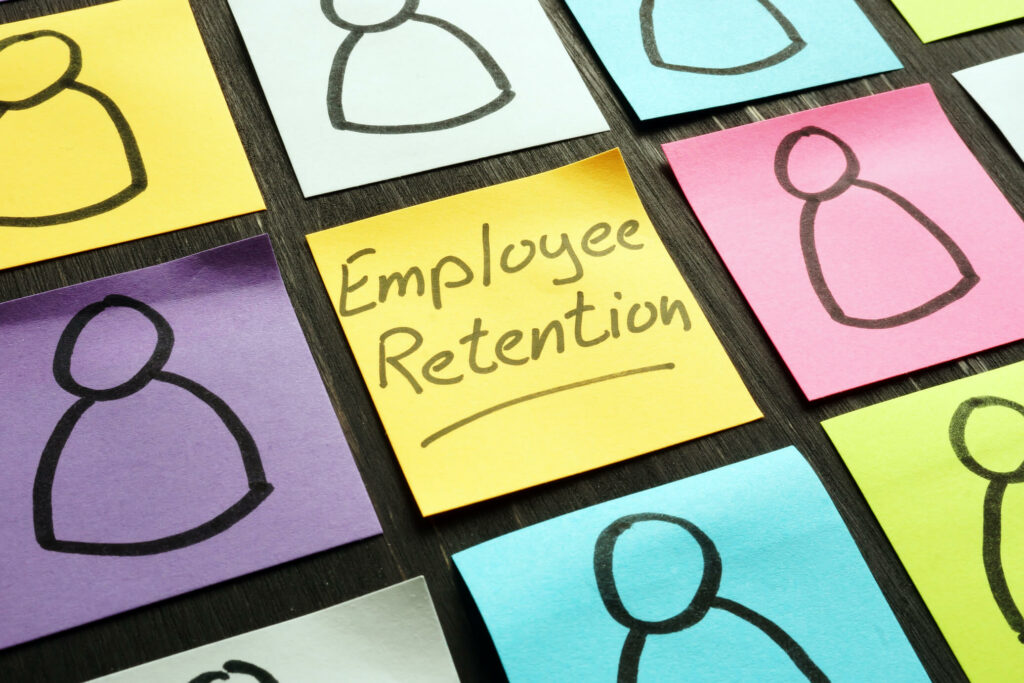Employee retention is a critical concern for businesses in today’s competitive landscape. To thrive and succeed, companies must not only attract top talent but also focus on retaining their valuable employees. High employee turnover rates can be costly and disruptive, leading to decreased productivity, increased recruitment expenses, and loss of institutional knowledge. To address these challenges, organizations are turning to employee retention companies for expertise and innovative strategies to build a loyal and committed workforce.
Contents
The Importance of Employee Retention

In the dynamic world of business, employee retention has become a key priority for organizations seeking stability and growth. The ability to retain skilled and motivated employees provides numerous benefits, including increased productivity, enhanced customer satisfaction, and positive work culture. This article explores the importance of employee retention and outlines strategies employed by leading companies to nurture a loyal and engaged workforce.
Employee retention plays a vital role in the long-term success of businesses. By retaining talented individuals, organizations can minimize recruitment costs, maintain a cohesive team, and foster a culture of loyalty. Moreover, loyal employees are more likely to invest in their work, develop their skills, and contribute to the overall success of the company. Retention efforts also contribute to building a strong employer brand, attracting high-quality candidates, and reducing the time and resources spent on constant hiring.
Understanding the Factors Affecting Employee Retention
Several factors influence an employee’s decision to stay with a company or seek opportunities elsewhere. Understanding these factors is crucial for developing effective retention strategies.
Competitive Compensation and Benefits
One of the primary factors influencing employee retention is fair and competitive compensation. Employees need to feel that they are adequately rewarded for their contributions. Offering a comprehensive benefits package that includes healthcare, retirement plans, and other incentives can significantly enhance retention rates.
Career Growth and Development Opportunities
Employees value organizations that invest in their professional growth and offer opportunities for advancement. Providing clear career paths, mentoring programs, and access to ongoing training and development can foster a sense of loyalty and commitment among employees.
Positive Work Environment and Culture
A positive work environment, characterized by trust, respect, and open communication, plays a crucial role in employee retention. Companies that prioritize creating a supportive culture where employees feel valued and heard are more likely to retain their top performers.
Recognition and Rewards
Recognizing and rewarding employees for their achievements and contributions is an effective retention strategy. Celebrating milestones, offering performance-based bonuses, and implementing employee recognition programs can boost morale and foster a sense of belonging.
Work-Life Balance
Maintaining a healthy work-life balance is increasingly important to employees. Companies that prioritize flexible work arrangements, provide adequate vacation time, and support work-life balance initiatives are more likely to retain their workforce.
Strategies for Improving Employee Retention

To improve employee retention rates, organizations can implement a range of strategies tailored to their specific needs and culture. Here are some proven approaches:
Implementing Effective Onboarding Programs
A well-designed onboarding program sets the stage for a positive employee experience from day one. It helps new hires understand their roles, responsibilities, and the company’s values, fostering a sense of belonging and commitment.
Providing Regular Feedback and Performance Evaluations
Regular feedback and performance evaluations are crucial for employee growth and development. By providing constructive feedback, setting clear expectations, and recognizing achievements, organizations can motivate employees and help them stay engaged.
Offering Training and Skill Enhancement Programs
Investing in employee training and development programs demonstrates a commitment to their professional growth. By equipping employees with new skills and knowledge, organizations increase job satisfaction and create a more capable and versatile workforce.
Fostering a Healthy Work-Life Balance
Promoting work-life balance initiatives, such as flexible work hours and remote work options, shows employees that their personal lives are valued. This approach helps reduce burnout and stress, leading to increased job satisfaction and improved retention rates.
Creating Opportunities for Career Advancement
Providing opportunities for career advancement is crucial for retaining ambitious and motivated employees. Organizations can establish mentorship programs, offer internal promotion pathways, and support ongoing learning to encourage growth within the company.
Encouraging Employee Engagement and Communication
Engaged employees are more likely to stay with a company for the long term. Encouraging open communication, involving employees in decision-making processes, and fostering a collaborative environment can strengthen employee engagement and retention.
Recognizing and Rewarding Employee Contributions
Regularly recognizing and rewarding employee efforts can boost morale and reinforce their sense of value within the organization. This can be achieved through performance bonuses, awards, or public appreciation for outstanding work.
Measuring and Monitoring Employee Retention
To evaluate the effectiveness of retention strategies, organizations need to measure and monitor employee retention rates. Here are some common methods:
Conducting Exit Interviews
Exit interviews provide valuable insights into the reasons employees leave the company. By analyzing feedback and identifying patterns, organizations can identify areas for improvement and make necessary adjustments to retain talent.
Analyzing Employee Satisfaction Surveys
Regular employee satisfaction surveys help gauge overall job satisfaction and identify areas of concern. By addressing these concerns proactively, organizations can improve employee retention and create a positive work environment.
Tracking Employee Turnover Rates
Tracking employee turnover rates allows organizations to assess the effectiveness of their retention efforts. By identifying trends and patterns in turnover, companies can develop targeted strategies to reduce attrition and retain top talent.
Evaluating Employee Engagement Levels
Employee engagement surveys measure the level of commitment and enthusiasm employees have for their work. By monitoring engagement levels, organizations can take proactive steps to improve employee satisfaction and retention.
Best Practices of Employee Retention Companies

Leading employee retention companies employ a range of best practices to help organizations achieve higher retention rates. Here are some key strategies employed by these companies:
Developing Customized Retention Strategies
Employee retention companies understand that a one-size-fits-all approach doesn’t work. They work closely with organizations to develop tailored retention strategies that align with their unique needs, culture, and goals.
Utilizing Data Analytics for Insights
Data analytics plays a crucial role in employee retention strategies. By analyzing employee data, such as performance metrics, engagement levels, and turnover rates, retention companies can identify trends and make data-driven recommendations.
Providing Continuous Learning and Development Opportunities
Employee retention companies emphasize the importance of ongoing learning and development. They help organizations design training programs, mentorship initiatives, and other opportunities for employees to enhance their skills and knowledge.
Promoting Work-Life Balance Initiatives
Employee retention companies recognize the significance of work-life balance and help organizations implement initiatives that support it. They guide flexible work arrangements, time-off policies, and wellness programs.
Fostering a Positive Organizational Culture
Creating a positive organizational culture is a key focus for employee retention companies. They assist organizations in building a supportive, inclusive, and engaging culture that fosters loyalty and commitment among employees.
Building Strong Employer Branding
Employee retention companies emphasize the importance of building a strong employer brand. By helping organizations develop an attractive employer brand and communicate it effectively, they attract top talent and retain existing employees.
Examples of Employee Retention Companies

- Mantracare: Mantracare is an employee retention company that specializes in creating data-driven retention strategies. They offer a range of services, including employee surveys, exit interviews, and predictive analytics, to help organizations identify and address factors that contribute to turnover.
- TalentKeepers: TalentKeepers focuses on employee engagement and retention solutions. They provide tools and resources to measure employee engagement, conduct stay interviews, and develop action plans to improve retention. Their approach emphasizes building strong relationships between employees and managers.
- Achievers: Achievers is an employee recognition and rewards platform that helps organizations boost employee engagement and retention. Their platform allows companies to recognize and reward employees for their achievements, fostering a positive work environment and increasing employee satisfaction.
- People Element: People Element offers employee engagement and retention solutions through its comprehensive platform. They provide surveys, analytics, and action-planning tools to help organizations measure and improve employee satisfaction, engagement, and retention.
- Work Institute: Work Institute specializes in exit interviews and employee engagement surveys. Their services help organizations gather valuable feedback from departing employees to identify areas of improvement and implement retention strategies. They also provide insights into employee sentiment and engagement levels.
Conclusion
Employee retention is a vital aspect of organizational success. By implementing effective strategies and partnering with employee retention companies, businesses can create a supportive work environment, foster employee loyalty, and reduce turnover rates. Prioritizing competitive compensation, career development, work-life balance, and recognition helps organizations build a loyal and committed workforce.
Employee wellness programs are the key to improving employee motivation, productivity, and retention. At MantraCare, we have a team of health experts, counselors, and coaches who serve corporate employees with 10+ well-being programs including EAP, Employee Diabetes Reversal, Corporate MSK, Employee Fitness, Corporate Yoga, and Employee Meditation.
